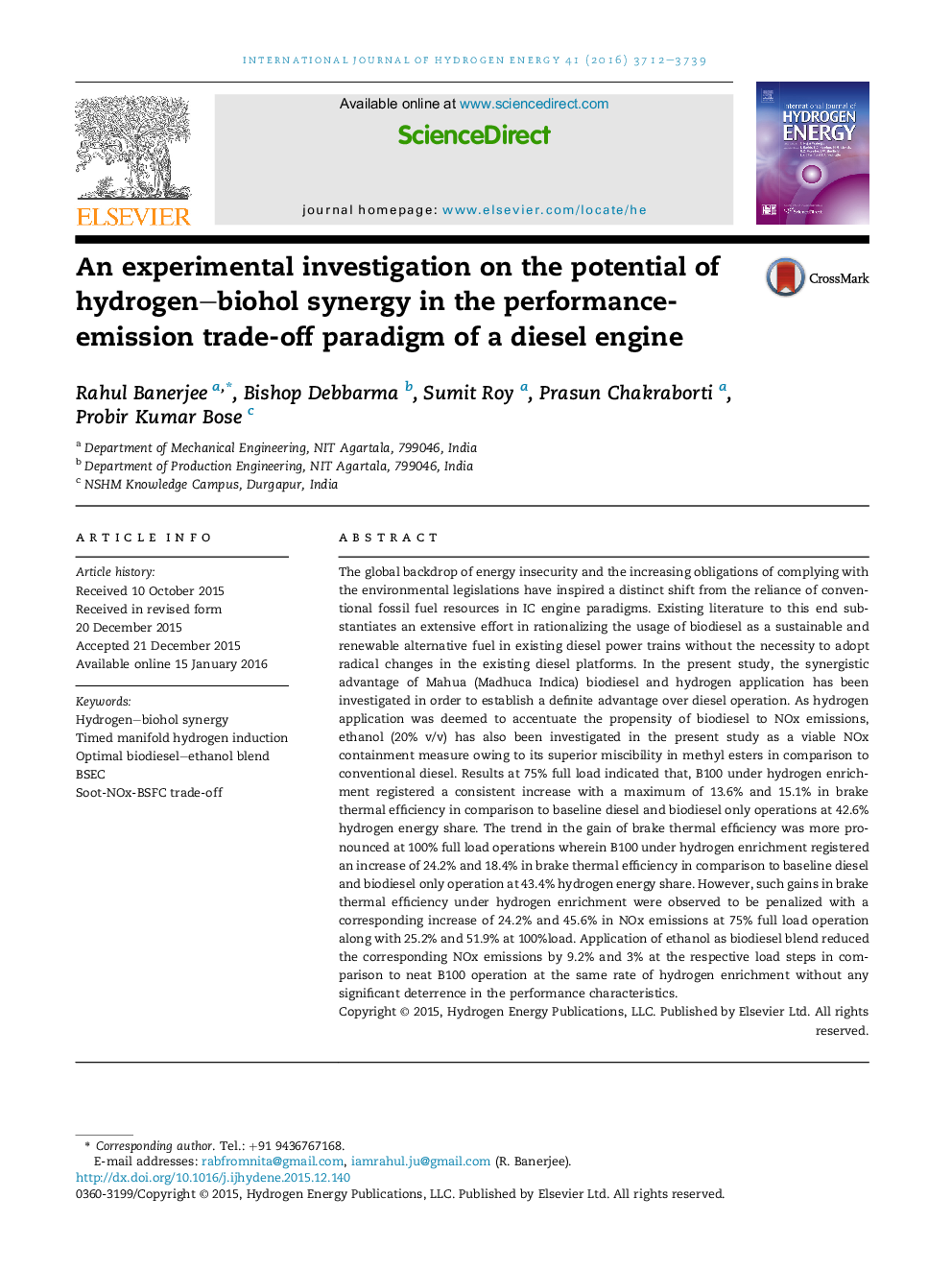| کد مقاله | کد نشریه | سال انتشار | مقاله انگلیسی | نسخه تمام متن |
|---|---|---|---|---|
| 1270273 | 1497420 | 2016 | 28 صفحه PDF | دانلود رایگان |
The global backdrop of energy insecurity and the increasing obligations of complying with the environmental legislations have inspired a distinct shift from the reliance of conventional fossil fuel resources in IC engine paradigms. Existing literature to this end substantiates an extensive effort in rationalizing the usage of biodiesel as a sustainable and renewable alternative fuel in existing diesel power trains without the necessity to adopt radical changes in the existing diesel platforms. In the present study, the synergistic advantage of Mahua (Madhuca Indica) biodiesel and hydrogen application has been investigated in order to establish a definite advantage over diesel operation. As hydrogen application was deemed to accentuate the propensity of biodiesel to NOx emissions, ethanol (20% v/v) has also been investigated in the present study as a viable NOx containment measure owing to its superior miscibility in methyl esters in comparison to conventional diesel. Results at 75% full load indicated that, B100 under hydrogen enrichment registered a consistent increase with a maximum of 13.6% and 15.1% in brake thermal efficiency in comparison to baseline diesel and biodiesel only operations at 42.6% hydrogen energy share. The trend in the gain of brake thermal efficiency was more pronounced at 100% full load operations wherein B100 under hydrogen enrichment registered an increase of 24.2% and 18.4% in brake thermal efficiency in comparison to baseline diesel and biodiesel only operation at 43.4% hydrogen energy share. However, such gains in brake thermal efficiency under hydrogen enrichment were observed to be penalized with a corresponding increase of 24.2% and 45.6% in NOx emissions at 75% full load operation along with 25.2% and 51.9% at 100%load. Application of ethanol as biodiesel blend reduced the corresponding NOx emissions by 9.2% and 3% at the respective load steps in comparison to neat B100 operation at the same rate of hydrogen enrichment without any significant deterrence in the performance characteristics.
Journal: International Journal of Hydrogen Energy - Volume 41, Issue 5, 9 February 2016, Pages 3712–3739
